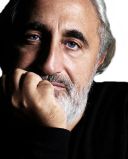Resilience
How to Seek Resilience During a Global Pandemic
Contextualize your plight against worse realities.
Posted April 7, 2020 Reviewed by Ekua Hagan

Nearly 30 years ago, as a first-year doctoral student at Cornell University, I had taken Professor Dennis Regan’s Advanced Social Psychology, a course that proved immensely influential in my educational career. This was the course that introduced me to evolutionary psychology and that embarked me on my eventual academic trajectory—to apply evolutionary psychology in understanding consumer behavior.
That said, in today’s post, I’d like to discuss a specific phenomenon that we had discussed in Regan’s course, which most people are likely already aware of via their folk psychology. Whenever people try to determine how well they have it in life, they often do so by comparing themselves to relevant others (social comparison theory). One element of this process is to take a negative situation that one is facing and identify comparable others who are facing much more difficult circumstances. Suddenly, you don’t feel nearly as badly about your reality. It’s a powerful tool to use when trying to find a positive angle from an otherwise negative situation.
With that in mind, I’d like to discuss two examples, one from my personal life, the other from the life of a former guest on my show (THE SAAD TRUTH) that might help people find the necessary resilience as they tackle yet another week of self-isolation and quarantining due to the COVID-19 crisis.
First, my personal story. I was born and raised in Beirut, Lebanon. We were part of the last wave of Lebanese Jews who had decided to stay in Lebanon following a consistent exodus of the Lebanese Jewish community over the previous several decades. In 1975, an extraordinarily brutal civil war broke out in Lebanon.
Everyone was at risk of imminent death, but it was a uniquely precarious reality for the Jews who had remained in Lebanon. For months at a time, we faced challenges that were astronomically scarier and more dangerous than anything that I’m currently experiencing with this global pandemic. The current self-isolation is tantamount to a honeymoon when contrasted to what I went through during my childhood. Those interested in learning more about my childhood in Lebanon can check out chapter 1 of my forthcoming book, The Parasitic Mind: How Infectious Ideas Are Killing Common Sense.
Viewed from this comparative lens, I am able to experience the current restrictions with a completely different perspective. Sure, it’s annoying. Sure, it can get boring. Sure, there are many personal and professional challenges that have arisen as a result of this self-isolation. But having experienced horrifying childhood trauma, I have a built-in antifragile protective shield that permits me to handle the current pandemic with a healthier outlook.
This brings me to a second story, not mine, but that of David McCallum. Mr. McCallum spent 29 years in prison for a crime that he did not commit. Several years ago, he was exonerated and eventually freed.
I was fortunate enough to host David for a chat on my show, and to this day, I remain in awe of his immeasurable generosity of spirit. If such an injustice had been imparted on me, I would have likely been consumed with anger, vindictiveness, and a desire for revenge. He did not exhibit any of these dark albeit natural emotions. He was a man who was simply grateful to have been given his life back. He appeared at peace.
Now try to contrast the feelings of frustration that we might all be feeling during this COVID-19 self-isolation and contrast it to 29 years of forced isolation in a cage. Suddenly, our current plight does not seem so difficult to bear. A healthy mindset allows us to contextualize our plight against all possible life events.
Let us continue to adhere to public policy guidelines. We are facing a tough crisis but one that is immeasurably less challenging than the types of suffering that countless human beings have historically faced. We shall overcome this pandemic, and to reference a well-known aphorism, that which does not kill us will only make us stronger. Bon courage to all.


